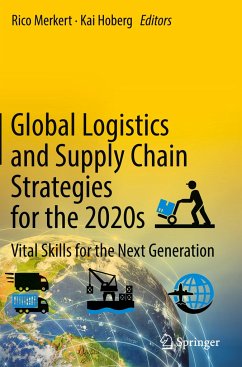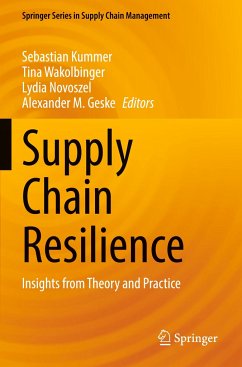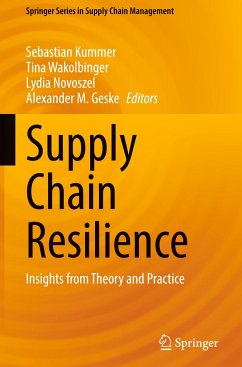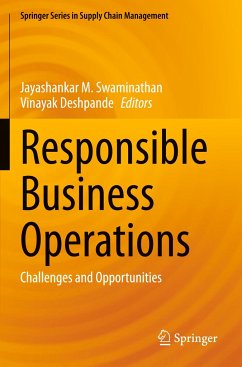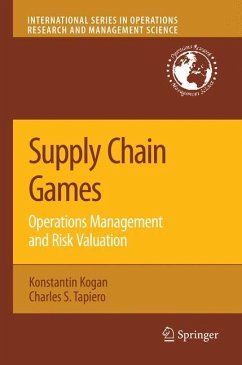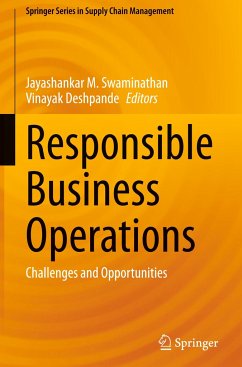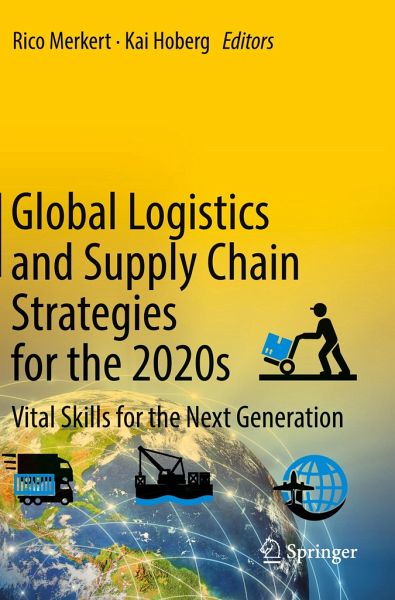
Global Logistics and Supply Chain Strategies for the 2020s
Vital Skills for the Next Generation
Herausgegeben: Merkert, Rico; Hoberg, Kai
Versandkostenfrei!
Versandfertig in 6-10 Tagen
38,99 €
inkl. MwSt.

PAYBACK Punkte
19 °P sammeln!
Logistics and supply chain management is facing disruptive economic, technological and climate change developments that require new strategies. New technologies such as the Internet-of-Things, digital manufacturing or blockchain are emerging quickly and could provide competitive advantage to those companies that leverage the technologies smartly while managers that do not adopt and embrace change could be left behind. Last but perhaps most important for mankind, sustainability aspects such as low-carbon transportation, closed loop supply chains or socially-responsible supply chain setups will ...
Logistics and supply chain management is facing disruptive economic, technological and climate change developments that require new strategies. New technologies such as the Internet-of-Things, digital manufacturing or blockchain are emerging quickly and could provide competitive advantage to those companies that leverage the technologies smartly while managers that do not adopt and embrace change could be left behind. Last but perhaps most important for mankind, sustainability aspects such as low-carbon transportation, closed loop supply chains or socially-responsible supply chain setups will become essential to operate successfully in the future. All these aspects will affect logistics and supply chains as a whole as well as different functional areas such as air cargo, maritime logistics or sourcing/procurement.
This book aims to dive into several of these functional topics to highlight the key developments in the next decade predicted by leading global experts in the field. It features contributions and key insights of globally leading scholars and senior industry experts. Their forward-looking perspectives on the anticipated trends are aimed at informing the reader about how logistics and supply chain management will evolve in the next decade and which academic qualities and skills will be required to succeed in the "new normal" environment that will be characterized by volatile and increasingly disrupted business eco-systems. Future scenarios are envisaged to provide both practitioners and students with insights that will help them to adapt and succeed in a fast changing world.
This book aims to dive into several of these functional topics to highlight the key developments in the next decade predicted by leading global experts in the field. It features contributions and key insights of globally leading scholars and senior industry experts. Their forward-looking perspectives on the anticipated trends are aimed at informing the reader about how logistics and supply chain management will evolve in the next decade and which academic qualities and skills will be required to succeed in the "new normal" environment that will be characterized by volatile and increasingly disrupted business eco-systems. Future scenarios are envisaged to provide both practitioners and students with insights that will help them to adapt and succeed in a fast changing world.





